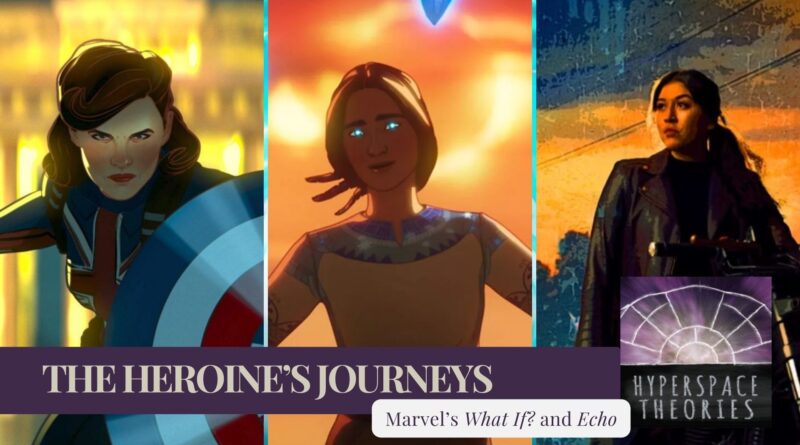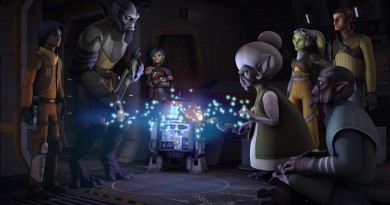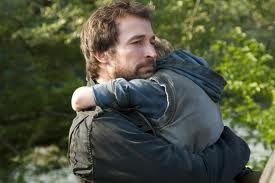Hyperspace Theories: The Heroine’s Journeys of the MCU’s Echo and What If? Series

The Marvel Cinematic Universe accomplished an unprecedented track record of box office earnings, followed by an uneven phase that included a few box office miscues and a mixed reactions to its span of Disney+ streaming series. In this episode of Hyperspace Theories, Tricia Barr and B.J. Priester discuss two MCU series that had lower profiles in fan attention and viewership, but much to consider in what they got right in their storytelling: the binge-dropped live-action series Echo and the animated series What If? released weekly in its second season.
Most significantly, both series featured stories with female leads that drew heavily upon elements of Heroine’s Journey stories rather than repeating the long-familiar tropes of male-centered superhero tales. More than a decade ago, prior to the release of the first film in The Hunger Games series, producer Nina Jacobson highlighted a core aspect of the story of Katniss Everdeen: that she is a nurturing heroine rather than a conquering hero. In a similar vein, Captain Carter and Kahhori are heroes motivated by protection rather than power, and Hela and Gamora shift from conquering to nurturing motivations. In Echo, Maya begins the story seeking revenge and power, and ends it dedicated to protecting her family and community. Similarly, the Campbellian Hero’s Journey traditionally focuses on a solo hero (who may have some allies), while contemporary Heroine’s Journey stories portray her as the center of a team, rejecting savior tropes in favor of collective action and shared success. Captain Carter leads teams of supers in both seasons of What If? and Maya’s story progresses from a solo vengeful quest spawned by men who kept her isolated from her family into a finale in which she prevails with a team of allies who help her restore bonds of family. We also note similar themes with Omega and her brothers in Star Wars: The Bad Batch.
Outside the parameters of the stories themselves, What If? and Echo also provide lessons for Star Wars and other franchises. For one, they reinforce the importance of who creates or writes the story. What If? and The Bad Batch were led by women showrunners, while Echo had two women as head writers, other women on the writing staff, and five episodes directed by women, including four by Sydney Freeland, a Navajo filmmaker. Their perspectives bring a voice and authenticity that comes through in the storytelling. In addition, both series also serve as a reminder that lore and source material only go so far: telling the best story is what matters. The alternate-universe multiverse of What If? demonstrates clearly how departing from the MCU’s “Sacred Timeline” can generate compelling and impactful stories that would be impossible within a single continuity – even going so far as to create a new character, Kahhori, who had not existed anywhere in the thousands of pages across decades of Marvel Comics. And although Maya Lopez originated in the comics, the Echo heroine we watch in Echo is changed in significant ways from that version of the character, reframing her characterization to increase the importance of her matrilineal ancestors and her powers to a more protective and defensive rather than combative emphasis – making her far more interesting as a comparison and contrast to the prior heroes in the MCU.
Related Links
- Journey of a Strong Female Heroine: Katniss Everdeen (March 2012)
- Team Katniss: Collaborative Success in The Hunger Games (March 2012)
Contact Information:
- Hyperspace Theories: Twitter @HyperspacePod
- Tricia Barr: Twitter @FANgirlcantina; email Tricia@fangirlblog.com
- B.J. Priester: Twitter @RedPenofLex; email Lex@fangirlblog.
- Hyperspace Theories: SKELETON CREW Ahoy! - December 29, 2024
- Hyperspace Theories: WICKED Part I Rises to the Moment - December 6, 2024
- Columbia’s Vader™ Collection Launches Dec 5 - November 27, 2024











